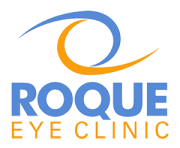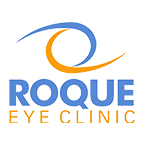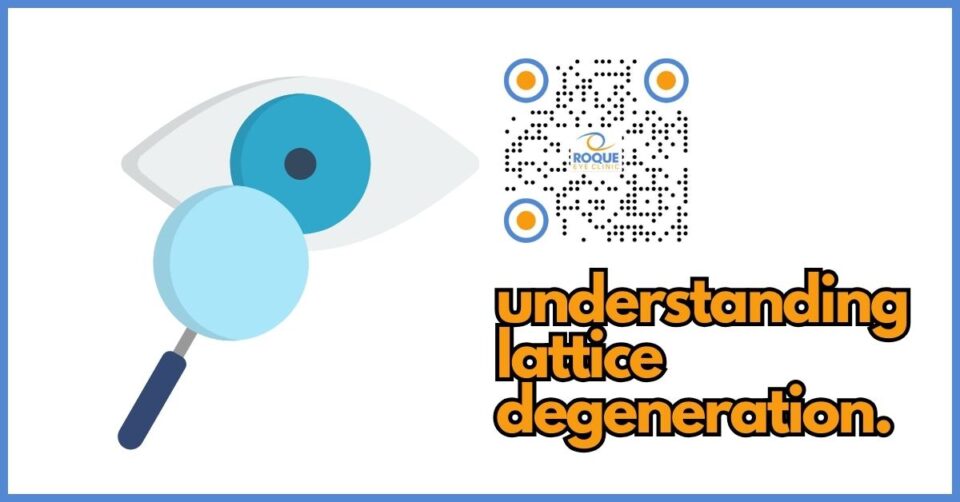Key Learning Points:
- What is Lattice Degeneration: Understanding the condition and its impact on the retina.
- Symptoms and Risks: Identifying early signs and potential complications.
- Treatment Options: Overview of current treatments and management strategies.
- Preventative Measures: Tips on reducing risks associated with lattice degeneration.
Lattice degeneration is a condition that affects the retina, the light-sensitive tissue at the back of the eye. It involves thinning and weakening of the retinal tissue, often characterized by lattice-like patterns. This article will provide a comprehensive overview of lattice degeneration, from symptoms and causes to treatment options and preventative measures.
What is Lattice Degeneration?
Lattice degeneration is a type of peripheral retinal degeneration in which the retina becomes thinner and is marked by a crisscrossing pattern of white lines. It's found in about 8-10% of the general population and is more common in myopic (nearsighted) individuals.
Symptoms of Lattice Degeneration
Most individuals with lattice degeneration do not experience symptoms until the condition progresses. However, some may notice:
- Flashes of light (photopsia)
- Blurred vision
- Floaters in the field of vision
Causes and Risk Factors
The exact cause of lattice degeneration is not known, but several factors increase the risk of developing this condition:
- High myopia (nearsightedness)
- Family history of retinal issues
- Other eye conditions like retinal detachment or tears
Diagnosis of Lattice Degeneration
Diagnosis typically involves a thorough eye examination, including:
- Dilated eye exam to inspect the retina
- Imaging tests like optical coherence tomography (OCT)
Treatment Options
Treatment for lattice degeneration focuses on monitoring and managing symptoms to prevent retinal detachment:
- Regular eye exams
- Laser surgery or cryotherapy in cases where there's a high risk of retinal tears
Preventative Measures
While lattice degeneration cannot be completely prevented, certain measures can help manage risks:
- Regular eye check-ups
- Protecting eyes from injuries
- Managing myopia
Frequently Asked Questions
-
Is lattice degeneration hereditary? Genetics can play a role, especially if there's a family history of retinal degeneration or related eye conditions.
-
Can lattice degeneration lead to blindness? While it does not cause blindness directly, complications like retinal detachment can lead to severe vision loss if not treated promptly.
-
How often should someone with lattice degeneration see an ophthalmologist? Individuals should undergo at least annual eye exams, or more frequently if their eye care professional recommends.
-
Are there any lifestyle changes that can help manage lattice degeneration? Proper diet, wearing UV-protective eyewear, and avoiding activities that strain the eyes can be beneficial.
-
Is surgery always necessary for lattice degeneration? Surgery is not typically required unless there's a significant risk of retinal detachment or other complications.
Take-Home Message
Lattice degeneration is a manageable condition with the right care and regular monitoring. Early detection and treatment are crucial for preventing serious complications. If you experience any symptoms or have lattice degeneration risk factors, consult an ophthalmologist to discuss the best care strategy for your eyes.
Bibliography
- American Academy of Ophthalmology. (2022). Lattice Degeneration Overview.
- National Institutes of Health. (2021). Retinal Degenerative Diseases.
- Clinical Ophthalmology. (2020). Peripheral Retinal Degenerations and the Risk of Retinal Detachment.
- Journal of Ophthalmic Research. (2019). Insights into Peripheral Retinal Degeneration.
- Patient Care in Ophthalmology. (2022). Managing Lattice Degeneration in Clinical Practice.
This comprehensive overview aims to inform patients about lattice degeneration, promoting a better understanding and management of this eye condition. Regular check-ups and appropriate treatment can help maintain good vision and eye health.
BOOK AN APPOINTMENT
It takes less than 5 minutes to complete your online booking. Alternatively, you may call our BGC Clinic, or our Alabang Clinic for assistance.






